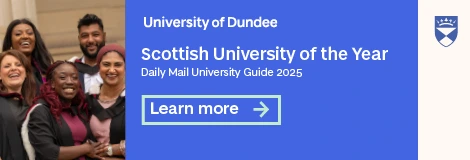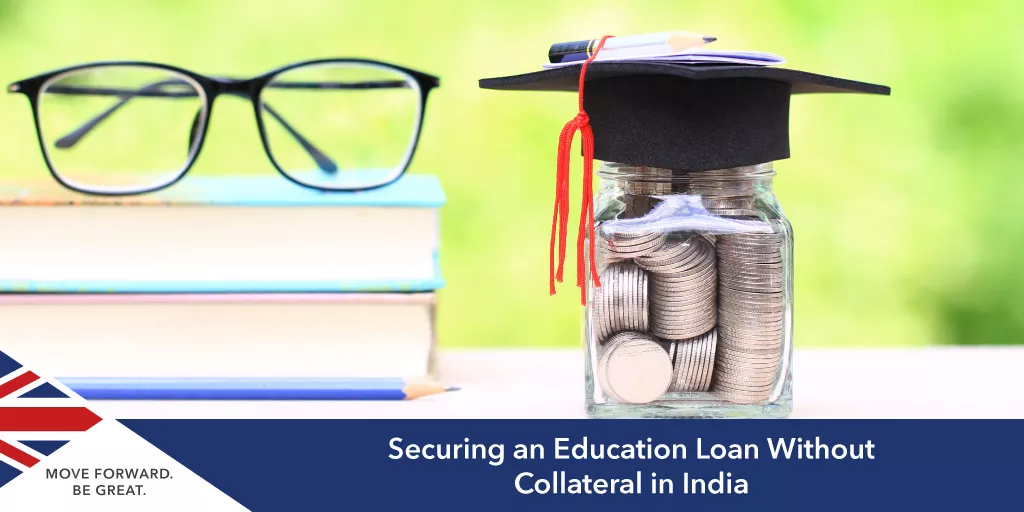Education loans are a lifeline for students pursuing higher education in India or abroad. With the escalating costs of education, many students face significant financial barriers, and educational loans play a crucial role in making quality education accessible to students from all walks of life.
Providing financial support to cover the high costs associated with education, including tuition fees, accommodation, books, and other expenses, these loans, students can take up to 50 Lakhs for their education abroad.
Learn more about the student loans available in India without collateral below, or book a free consultation with SI-UK India today to begin your study abroad application.
Types of Loans
Understanding the differences between secured and unsecured loans can help you decide better when borrowing money. It's important to note that while unsecured loans may seem more accessible without collateral requirements, they often have stricter eligibility criteria, such as a good credit score or a co-signer to qualify.
Secured Loans
Collateralized loans for education in India require you to provide something valuable as security to the lender, such as property, a vehicle, or any other valuable asset. If you cannot repay the loan, the lender has the right to take possession of the collateral. These loans typically have lower interest rates because the collateral reduces the lender's risk.
Unsecured Loans
On the other hand, unsecured educational loans in India don't require any collateral. You don't have to provide any valuable asset as security to the lender. These loans are granted based on factors like your academic performance, income, and creditworthiness. Since there is no collateral involved, unsecured loans generally have higher interest rates compared to collateralised loans.
How Can You Get an Education Loan without Collateral?
To get an education loan without collateral, you need to meet certain requirements the lender sets. This may include having a good academic record, getting admission to a recognized institution, and choosing a course that is eligible for the loan. Although each of them has their specific requirements, some general eligibility criteria are as follows:
- Applicants have to be Indian citizens.
- Their Co-applicants also have to be an Indian citizen
- Confirmed admission/ invite from the university
- Applicants to meet a certain academic profile like completing a minimum of 10+ 2 (12th Standard)
- Co-applicants' income and CIBIL score
- Course/Degree/University from the list of approved ones
Documents Required for an Unsecured Education Loan
Each bank will have its own specific criteria for granting unsecured education loans, but there are some common requirements that you should be prepared for. These may include:
- Proof of identity: You will need to provide KYC (Know Your Customer) documents, such as your Aadhaar card, PAN card, passport, or driver's licence.
- Academic documents: You will be asked to submit your academic records, including mark sheets and passing certificates of previous exams, such as S.S.C., H.S.C., and degree courses.
- Admission letter: You will need to provide a copy of the offer letter from the institute or university where you have secured admission. This letter should include the details of the programme and the fee schedule.
- Income proof: Depending on the bank's requirements, you may need to provide income proof of the co-applicant or guarantor, such as salary slips or Form 16.
- Bank statements: Banks typically ask for bank statements of the applicant and co-applicants for the last 6 months to assess your financial stability.
Please note that these are general requirements, and it's essential to check with the specific bank for their complete list of required documents and eligibility criteria.
Where Can I Get An Education Loan?
There are many leading banks and financial institutions that offer education loans to help students achieve their academic objectives. An educational loan with a payback duration of up to 20 years typically could start with 7.00% per year in interest.
Public Banks
Public banks such as SBI, BOB, and others have their own policies regarding unsecured education loans. Generally, they offer loans without collateral of up to 7.5 lakhs for any course and country.
Private Banks
Private banks have more flexibility and can offer higher loan amounts for studying abroad without requiring collateral. Depending on the bank, you can avail loans up to 1.5 crore for your education expenses. Private banks maintain a list of approved universities and institutes for which they grant unsecured loans. The interest rates for these loans typically start at 11.05% and may vary. Some of the top private banks that provide unsecured education loans are HDFC, ICICI, Axis Bank etc.
Non-Banking Financial Companies (NBFC)
Apart from the nationalised and private banks, student loans can also be availed from non-banking financial companies/institutions (NBFCs). Non-banking institutions offer complete tuition fees to students, but they need to provide collateral as security to the banks as the loan amount is generally more than INR 7.5 Lacs. Some of the NBFCs options are Credila, Avanse, International Student Loan Program (ISLP) etc.
Education Loans and Schemes to Study Abroad by the Indian Government
The Indian government has implemented several schemes and programs to support students who wish to study abroad. They provide financial support, simplify loan application procedures, and ensure that deserving students have the opportunity to fulfil their academic aspirations on an international level. Some key schemes offered are study loans by NBCFDC, the Central Scheme of Interest Subsidy for Education Loans (CSIS), and the Vidya Lakshmi Education Loan Scheme.
Education Loan Repayment Process
Typically, the repayment period for education loans begins either 12 months after completing the course or 6 months after securing employment, whichever happens, earlier. The specific moratorium period can vary among different lenders, allowing borrowers some time before they start repaying their loans.
When choosing an educational loan, consider additional costs like processing fees and insurance and compare benefits such as tax exemptions and moratorium periods. Some educational loans may provide tax benefits that reduce your financial burden. By carefully considering these factors, you can make an informed choice and find an educational loan that suits your financial needs and offers favourable terms and benefits.
Education Loan without Collateral FAQ
Q. Can I get an education loan without any collateral?
Yes, getting an education loan without any collateral is possible. Many banks and financial institutions offer education loans without requiring any collateral or security.
Q. Which bank does not need collateral for an education loan?
Several banks in India offer education loans without the need for collateral. Some prominent examples include the State Bank of India (SBI), Bank of India (BOI), Punjab and Sind Bank, and HDFC Bank. However, it's important to note that the specific loan policies may vary from bank to bank, so it's advisable to check with individual banks for detailed information.
Q. Who is eligible for a Vidya Lakshmi education loan?
Vidya Lakshmi is an online portal launched by the Government of India to provide a single-window platform for students seeking education loans. Eligibility for Vidya Lakshmi education loans varies depending on the loan scheme and the lending institution. Typically, Indian nationals who have secured admission to recognised educational institutions in India or abroad are eligible to apply. The specific eligibility criteria may include factors such as academic performance, course selection, co-borrower requirements, and repayment capacity.
Q. Is it difficult to get an education loan without collateral?
Obtaining an education loan without collateral may be comparatively easier than securing loans that require collateral. However, the difficulty can still depend on various factors, such as the lending institution's policies, the borrower's creditworthiness, academic credentials, and the course of study.
Q. How much maximum education loan can I get without collateral?
The maximum education loan amount available without collateral varies among banks and financial institutions. Generally, banks may offer loans up to a certain limit for education loans without collateral, such as INR 7.5 lakhs or INR 50 lakhs, depending on the institution and course of study.



 I sincerely thank SI-UK for getting me accepted to UCL. The MSc in Urban Development and Planning is extremely competitive, but the right guidance provided by SI-UK made my dream of studying at University College London a reality. The services were exceptional from beginning to end.
I sincerely thank SI-UK for getting me accepted to UCL. The MSc in Urban Development and Planning is extremely competitive, but the right guidance provided by SI-UK made my dream of studying at University College London a reality. The services were exceptional from beginning to end. 

